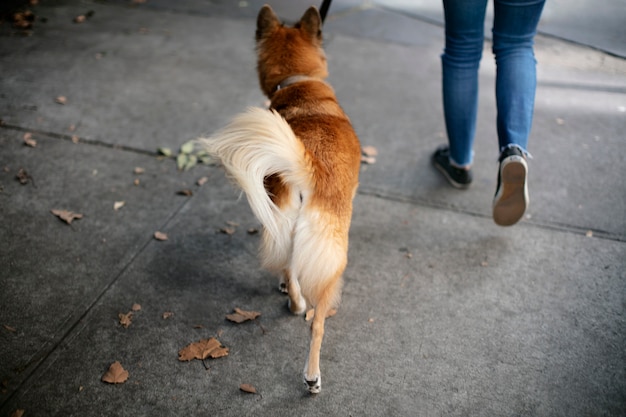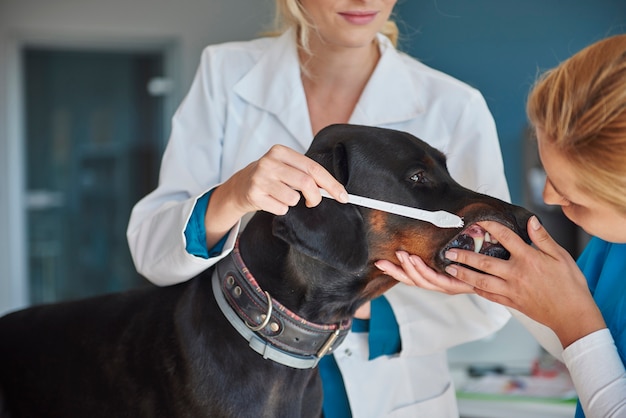Why Is My Pet Limping? When to Seek Veterinary Help

Why Is My Pet Limping? When to Seek Veterinary Help
If you’ve noticed your dog or cat suddenly favoring one leg, hesitating to jump, or showing signs of discomfort when walking, you’re not alone. Limping is a common concern among pet owners in Pike Road, AL, and it can be distressing to see your beloved companion in pain. At Partners for Pets, our veterinary team understands how alarming it can be when your pet’s movement changes unexpectedly. Whether your pet is experiencing a mild limp after an energetic romp in the yard or is suddenly unable to bear weight on a leg, it’s natural to wonder what’s causing the issue and how quickly you should seek help. This blog will explore the most common pet limping causes, how to recognize when limping is serious, and why prompt attention from a trusted veterinarian can make all the difference for pets in Pike Road and surrounding communities.
As your neighborhood vet hospital located at 11123 Chantilly Parkway Unit G, Pike Road, AL 36064, we provide comprehensive care for everything from routine checkups to urgent conditions like sudden limping. Throughout this article, we’ll help you understand when to schedule an appointment and how our advanced in-clinic diagnostics and laboratory services can uncover the root of your pet’s mobility issue. If you’re searching online for “vet near me” or “pet limping causes in Pike Road,” you’ve found a dedicated partner in your pet’s health journey.
Recognizing Limping in Pets: Signs Your Pet Needs Attention
It’s not always obvious when a pet is limping, especially if the change is subtle or only occurs after certain activities. Some animals are masters at masking discomfort, so as a pet parent, it’s important to observe even minor changes in your pet’s gait or activity level. Classic signs of limping include favoring one leg, holding a paw off the ground, or hesitating to put weight on a limb. Additionally, you might notice your pet licking or chewing at a particular area, vocalizing when moving, or having difficulty rising from rest.
Other signs that suggest your pet’s limping requires a closer look include swelling around a joint, visible wounds or bleeding, sudden reluctance to climb stairs, or any audible popping sounds when your pet moves. It’s also important to watch for behavioral changes; if your normally playful dog becomes withdrawn or your agile cat starts hiding, these could be clues that pain or discomfort is present.
If your pet’s limp seems to worsen with activity, persists for more than a day, or is accompanied by other changes like loss of appetite or lethargy, these are important details to share with your veterinarian. Early recognition and prompt assessment can prevent minor injuries from turning into chronic problems, especially when it comes to pet limping causes that are common in our local environment.
Common Causes of Limping in Dogs and Cats
Limping can result from a wide range of issues, from simple sprains to more complex orthopedic conditions. In energetic dogs, running or playing on uneven ground can lead to muscle strains, ligament injuries, or even broken bones. Cats, with their instinctive leaps and jumps, may experience soft tissue injuries, torn claws, or bite wounds from outdoor adventures.
Some of the most frequent pet limping causes in Pike Road include minor strains, sprains, and bruises from slips or rough play. Additionally, overgrown nails, foreign objects lodged in the paw, or insect stings can lead to sudden limping. In older pets, arthritis is a leading cause of chronic, intermittent limping, particularly on cooler mornings or after periods of rest. For certain breeds, orthopedic conditions like hip dysplasia or luxating patella can cause recurring mobility issues, while active dogs may be prone to ligament tears such as cranial cruciate ligament (ACL) injuries.
In some cases, limping can be a sign of more serious problems, including bone fractures, dislocations, or joint infections. Tick-borne diseases and immune-mediated conditions may also result in lameness that shifts between legs. If your pet has recently experienced trauma, such as being hit by a car or falling from a height, immediate veterinary attention is critical.
It’s worth noting that some causes, such as fractures or severe ligament tears, require advanced diagnostics and may need surgical intervention. Our team at Partners for Pets is trained in comprehensive pet diagnostics and has access to digital radiology and vet ultrasounds to accurately identify the underlying problem.
How We Diagnose and Treat Limping in Pike Road Pets
When you schedule an appointment for your pet’s limp at Partners for Pets, our veterinary professionals begin with a thorough physical examination, paying close attention to your pet’s posture, muscle tone, and joint movement. We’ll ask about when you first noticed the limp, any recent activity or injuries, and whether the issue seems to improve or worsen at certain times.
Our diagnostic approach may include orthopedic assessments, neurological checks, and pain mapping to pinpoint the source of discomfort. When necessary, we utilize state-of-the-art digital radiology to look for fractures, joint abnormalities, or signs of arthritis. For soft tissue injuries or suspected internal issues, veterinary ultrasound imaging allows us to visualize muscles, tendons, and ligaments with precision.
Treatment plans are tailored to your pet’s specific diagnosis. For mild sprains or strains, rest and controlled activity are often recommended, sometimes combined with anti-inflammatory medications or pain relief. Wound care or foreign object removal may resolve limping related to paw injuries. In cases of chronic arthritis, we’ll discuss medical management, weight control, and joint supplements designed for long-term comfort.
For more serious conditions like ligament injuries or fractures, surgical intervention may be necessary. Partners for Pets offers advanced orthopedic surgery services, including broken bone surgery, ACL surgery, and hip dislocation surgery, all performed by our experienced veterinary surgeons. We are committed to providing the highest standard of veterinary diagnostics in Pike Road and ensuring your pet receives the right care at the right time.
Throughout your pet’s recovery, our veterinary team will guide you on rehabilitation techniques, pain management, and follow-up visits to monitor progress. We are here to answer your questions and provide ongoing support, helping you navigate every step of the process with confidence.
Home Care and Prevention: Supporting Your Pet’s Mobility
While some causes of limping are unavoidable, there are many steps pet owners can take at home to reduce the risk of injury and support joint health. Maintaining a healthy weight is one of the most important factors; excess pounds place added strain on joints and can worsen arthritis or ligament problems. Regular, controlled exercise helps keep muscles strong and flexible, while avoiding high-impact activities on hard surfaces can minimize the chance of sprains or fractures.
Keep your pet’s nails trimmed to prevent overgrowth and snagging, and inspect paws regularly for cuts, thorns, or foreign material. For pets who spend time outdoors in the Pike Road area, be vigilant for insect stings, ticks, or snake bites, especially during warm weather months. Providing orthopedic bedding for older pets and using ramps or steps can make it easier for them to get on and off furniture without risk.
If your pet has a known orthopedic condition, follow your veterinarian’s guidance on activity restrictions, supplements, or medications. Never give human pain relievers or attempt to splint a limb at home; some medications are toxic to pets, and improper splinting can cause further injury. If you are ever unsure about the severity of a limp or how to help your pet, it’s always best to consult with our veterinary professionals.
When to See a Vet for Limping: Knowing When It’s Urgent
Determining when to see a vet for limping can be challenging, especially if your pet seems otherwise healthy. However, there are certain red flags that indicate a need for immediate veterinary attention. Pets who are unable to bear weight on a limb, show signs of severe pain, or have visible wounds or swelling should be seen as soon as possible. Additionally, if your pet’s limp is accompanied by lethargy, fever, or changes in breathing or behavior, these could be signs of infection or systemic illness that require prompt evaluation.
Chronic, intermittent limping that does not resolve with rest, worsens over time, or is seen in a senior pet may point to arthritis or underlying joint disease. In these cases, an early diagnosis can make a significant difference in your pet’s comfort and quality of life. Seasonal conditions in Pike Road, such as slippery walkways during rainy weather or increased outdoor activity in the spring and summer, can also contribute to a spike in pet limping causes in Pike Road and surrounding communities.
If you’re searching for “veterinary services near me” or wondering whether your pet’s limp warrants a visit, our team at Partners for Pets encourages you to schedule an appointment for a comprehensive pet exam. Timely evaluation allows us to identify the root cause, offer effective treatment, and prevent further complications.
Compassionate Care for Limping Pets in Pike Road: Schedule Your Visit Today
Seeing your pet limp can be a worrying experience, but you don’t have to navigate it alone. At Partners for Pets, our veterinarians are dedicated to providing advanced veterinary diagnostics in Pike Road and personalized care for every pet and family. Whether your pet’s limp is the result of a minor strain or a more complex orthopedic issue, our commitment to quality vet near me services means you can trust us with your companion’s well-being.
If you notice any signs of limping, discomfort, or changes in your pet’s mobility, don’t wait for the problem to worsen. Schedule an appointment with our veterinary team by calling (334) 218-4500 or visiting our Pike Road location. We are here to answer your questions, offer guidance, and provide comprehensive pet diagnostics to get your furry friend back on their feet.
Your pet’s comfort and mobility matter to us. Reach out today to experience the difference of quality veterinary services near me, and let Partners for Pets be your trusted partner for pet limping causes and more in Pike Road and surrounding communities.
Medical disclaimer: This information is provided for educational purposes only and should not replace professional veterinary care. Always consult your veterinarian for a diagnosis and treatment plan tailored to your pet’s specific situation.



















